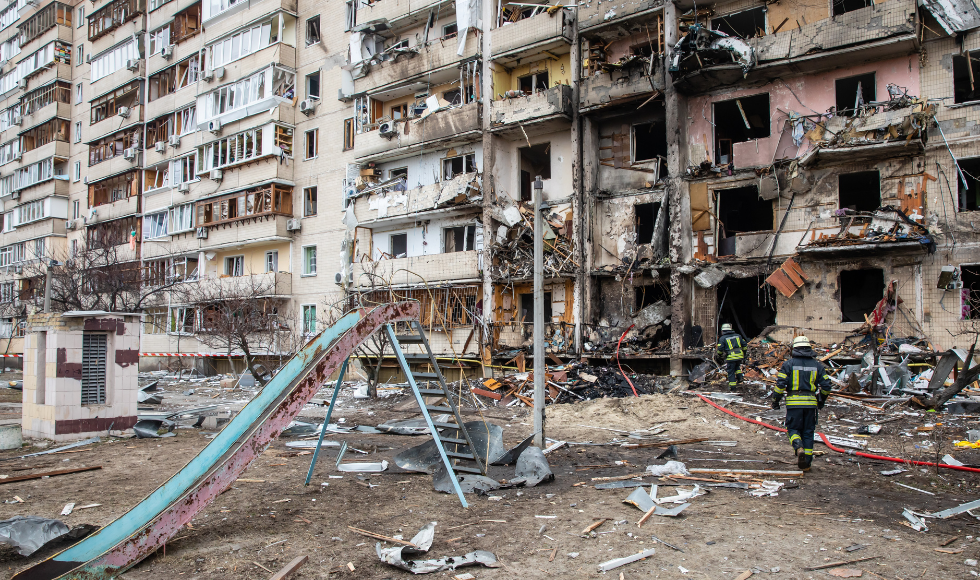The Narratives of War shares testimony of 1,500 Ukrainian civilians

Researchers from McMaster and a Ukrainian university have collected and translated anonymous 300-word accounts of the war, which will be part of a virtual exhibit beginning June 29. (Shutterstock image)
BY Matt Innes-Leroux
June 23, 2023
A collaboration between McMaster and Ukrainian researchers has collected first-hand accounts of war from more than 1,500 civilians affected by Russia’s 2022 invasion of Ukraine.
The project was motivated by media coverage that lacked voices of ordinary Ukrainians impacted by the war, McMaster Linguistics professor Victor Kuperman told the Hamilton Spectator.
“These are authentic stories from real people that show the full scope, severity and conditions of what they have experienced,” Kuperman said. “They remove the filters we are otherwise exposed to in the news.”
Researchers from McMaster’s Centre for Advanced Research in Linguistics (ARiEAL) and Lesya Ukrainka Volyn National University in Lutsk, Ukraine, spent more than a year collecting and translating anonymous 300-word accounts of the war. The testimonies will be shared as part of a virtual exhibit called The Narratives of War, beginning June 29.
The testimonies will include searchable data, such as participants’ ages and rough geographical locations.
“It’s really interesting because you can see how the war is divided by regions,” Olga Dvorova, a master’s student in Gender and Social Justice, told the Spectator. “You can see people mentioning the same tragedy because they’re in the same places.”
Dvorova, who came to McMaster from Taras Shevechenko National University of Ukraine last year as part of a program for displaced scholars, is one of four Ukrainian researchers who worked on the exhibit.
The project affirmed her belief that no family in Ukraine has escaped the war unscathed, and that residents in the western regions of Ukraine, far away from the frontlines, are “constantly afraid,” she said.
“The testimonies show how they don’t know what will happen next. They also show how people’s priorities change during war and what’s important to them now, like family.”
Researchers say the exhibit documents both the suffering and the unwavering hope of the Ukrainian people.
“Suffering and trauma, hope and resilience: both sides emerge in every story,” said Kuperman.


